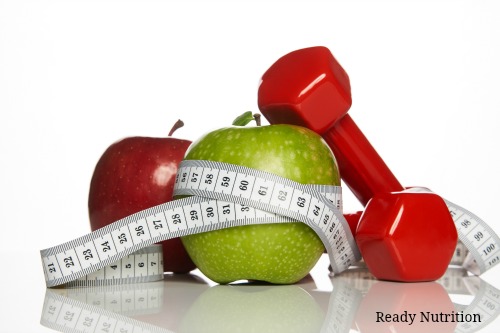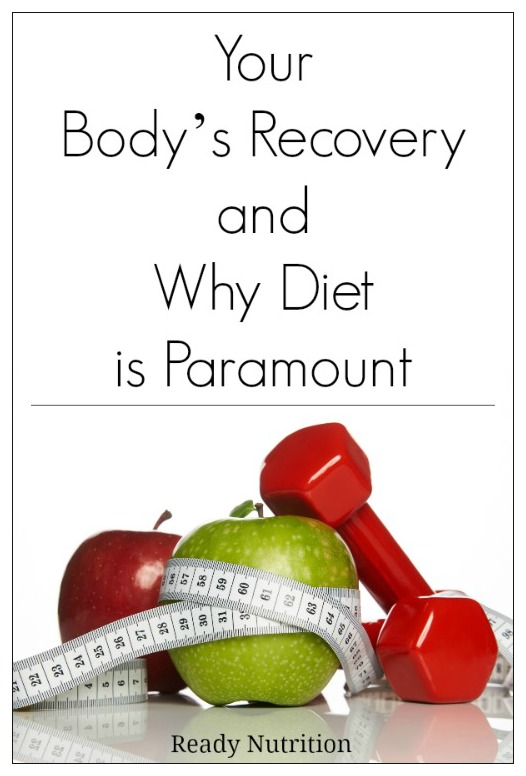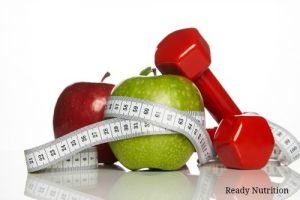
These losses we inflict upon it every day. Improper diet, not enough fluid intake, and excessive work without recovery are the inflictions we foster on ourselves. In past articles, I have stressed the importance of protein [1] in many Ready Nutrition articles, as well as tissue repair and building muscle. Regarding muscle, the substance we need to discuss is called glycogen, and it is defined as a substance formed by your liver and muscle tissues from carbohydrates (glycogenesis) or non-carbohydrate sources (then termed glyconeogenesis).
Glycogen [2] is excess carbohydrates stored in the liver and muscles that is (in a process known as glycogenolysis) later converted to glucose. When blood glucose levels decrease, the liver picks up the slack and makes new glucose from the stored glycogen. Glucose is used by the body for many functions and is the primary energy source for all living things. This is basic stuff, and it is important for you to understand this in order to allow your body to recover.
Glycogen stores are utilized with heavy lifting and physical exercise [3]. When you’re lifting weights, shoveling snow for three hours, or cutting wood for two, your body is breaking down muscle tissue. Anabolism is a phase of where the muscle tissue is “torn,” or broken down with the physical exertions. Catabolism then follows, where the protein in your body needs to be prevented from breaking down too far: in this phase, you must take in (replenish) your protein and carbohydrates.
With those activities just mentioned, your body uses its stores of glycogen within the muscles and liver. After the supplies are depleted? Your body then resorts to breaking down its own muscle tissue and converting it into glycogen, then glucose (we just mentioned glyconeogenesis as glycogen-production from non-carbohydrate sources…in this case, your own muscle tissue). This “self-breakdown” and conversion of your own muscle tissue to feed your body’s need for glycogen (and then glucose) is referred to as “cannibalism” by bodybuilders and weightlifters. This can (and should!) be prevented.
When that point of depletion is reached, here is what you face: For every 30 minutes of ongoing activity (when glycogen stores are depleted), your body cannibalizes 5 to 6 grams of protein to convert it into glycogen.
That’s serious, folks. This is the reason you must constantly supply your body with high-quality protein in order to prevent that cannibalism of your muscles from occurring. There are 8 essential amino acids that we’ve covered in prior articles. Your sources for protein are as follows: dairy products (milk and cottage cheese are biggies), eggs, poultry, fish, beef, oats, nuts, and soybeans.
When you work out or perform strenuous work, you should immediately take in high protein and low to medium carbohydrates within 30 minutes of the exercise or work. If you have a whole day ahead of you regarding strenuous activity, you need to take frequent breaks on the half hour or hour, and take in protein and carbs. Along with the protein is another important point to consider, and that is water.
We’ve already discussed the importance of water (even during the wintertime) [4] and staying hydrated even when you do not feel you are thirsty. Remember: Thirst is a late sign of dehydration. When you’re thirsty, you’re most likely already depleted of water. Regarding muscle and strenuous activity, our sweat is comprised of 60% water, and our muscle tissues are made up of 80% water. You see the point, right? You should drink anywhere from 80 to 96 ounces of water on days without strenuous activity, just as the normal course of your day. Intake of water prevents kidney stones, lowers the risk of bladder cancer and infections, and keeps you hydrated.
Your body is akin to a machine, and you must keep it properly fueled and maintained to derive maximum performance from it. Recovery should also involve sleep, especially in the winter months when the days are shorter. The circadian rhythm was not inculcated into us as a species for no reason. You need your rest in the winter even more than in the warm months. Proper rest, proper diet, and an understanding of how your body works and fuels itself at the cellular level will promote success for you in your undertakings. Eat well, drink plenty of water, and know your limitations…how to work with them and the times your body needs you to help it along. Be good to one another and stay in that good fight! JJ out!

